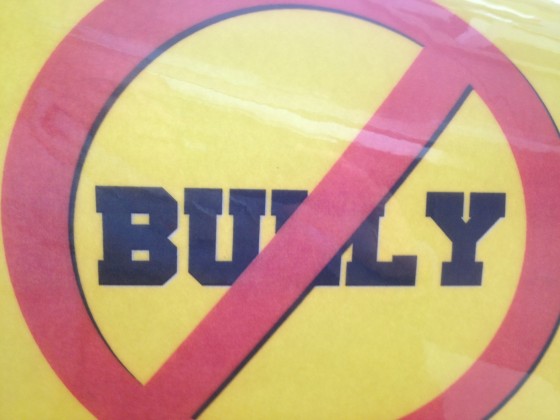
Harnessing the power of thinking—knowing that what we think has a huge impact on how we feel, and then putting that knowledge to use—has had powerful results for me. I’ve also learned that discounting other people’s feelings is a mistake and I’ve gotten better over time at balancing the power of thinking and the importance of empathy—putting myself in the other person’s shoes.
Empathy has been one of the keys to my success relationships. At work, for example, asking myself, “How would I feel if I was in that situation?” has helped me to know what to do in order to provide the best customer service. And at home, I’ve seen how much better I was able to help my kids once they got to ages that I could relate to, and experiences I remember having—allowing me to put myself into their shoes.
Roots of Empathy
With that background, it was with great interest that I attended a speech by Mary Gordon on her program Roots of Empathy.
Gordon is a pioneer of the anti-bullying effort. She has attacked bullying at its roots by teaching young kids to be empathetic—to put themselves in someone else’s shoes, to feel how someone else would feel.
The students in the Roots of Empathy program learn that we are all the same. We may have a different skin color, we may speak a different language, our cultures may differ—and we need to embrace and celebrate those differences.
Roots of Empathy’s unique approach is to have a baby in a classroom for regularly scheduled, weekly visits over a full school year. The children learn that if the baby cries a lot, it is not a bad baby. If the baby doesn’t sleep well, it is not a bad baby. They learn that what they are seeing is not a bad baby, but a baby with various feelings. The children learn that, like the babies, we are each different in our own ways. And we each experience various feelings.
When the kids watch the baby reaching for a toy out of its reach, they see the baby get frustrated. The kids then feel frustrated for the baby, and are taught that they have just experienced empathy—feeling someone else’s feelings. They learn that empathy is something that will help them to be good citizens in all areas of their life.
My Experience with Bullies
I was bullied when I was a kid. Of course, I hated it. But, I thought it was normal. Part of growing up.
I don’t mean I sucked it up. I don’t mean I was stoic about it. I just thought it was my lot. I grew up watching the Little Rascals on TV. Butch, the neighborhood bully, would push around Alfalfa, and I thought I was just like Alfalfa.
Like Alfalfa, I did my best to avoid the bullies and bullying situations. But, like Alfalfa, sometimes I couldn’t avoid them entirely.
Fortunately, being bullied didn’t feel like an overwhelming part of my life at the time. But it definitely had a long-term effect. I didn’t make the connection until I was in my late 40s until I realized that childhood fantasies of getting back at the bullies had fueled a bunch of adult outbursts. None of those outbursts were positive experiences and some got me in big trouble, including once that landed me in the hospital when I was 24.
Bullying has come into the spotlight in recent years. I’ve said many times that I wish they had the anti-bullying laws when I was a kid—and also the anti-bullying education, training, and awareness that allows kids to feel comfortable going to their teacher, their principal, or their parents. I never complained about a bully to anyone. I figured that if I did I would be asking for more trouble the next time I ran into the bullies.
Roots of Empathy’s Results
The students in Roots of Empathy learn to treat others the way you want to be treated; they learn to be “upstanders” instead of bystanders—to stand up against bullying; they learn to recognize their own bullying behavior; and they learn that everybody has feelings.
They are observed and evaluated so that the program’s outcomes can be measured. And it works. They come out of the experience changed and enlightened, consistently exhibiting a decrease in aggression, an increase in prosocial behavior, and an increase in social and emotional understanding.
They are taught that if something doesn’t feel fair, go with your feelings and know that it isn’t fair. If you see something, say something and do something. If you see another kid alone in the playground, go over to them and include them. “Do you want to play?” is the question that breaks down every barrier and “You can’t play with us” is the cruelest thing a kid can hear. And for the kids who participate in Roots of Empathy, those aren’t just words. They have learned as children—as I have learned as an adult—that empathy is the gateway.
Think about your own experiences today. Spend some time noticing your behavior and that of those around you. Work on your own empathy and help others to get in touch with their ability to empathize. As Mary Gordon says, “If we can get man to walk on the moon, we can get man to walk in each other’s shoes.”
What were your experiences with bullying? What are your experiences with empathy? Join the conversation with your comments…
Best regards,
David
